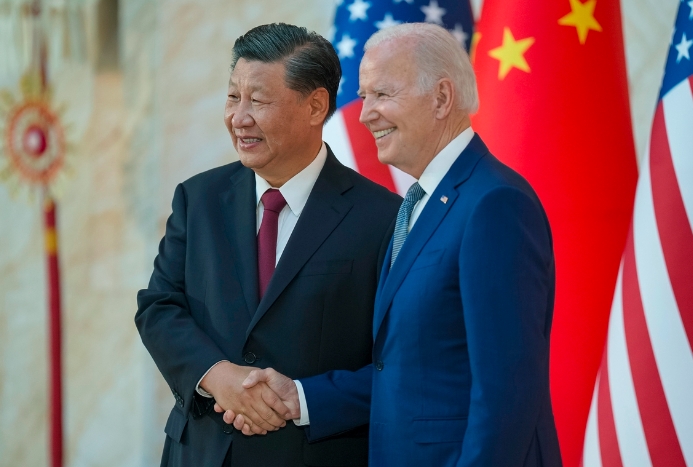China’s President Xi Jinping delivers a surprise speech at the World Economic Forum
In a rare appearance at the annual meeting of the World Economic Forum in Davos, Switzerland, China’s President Xi Jinping delivered a speech that signaled a willingness to engage with the U.S. on trade issues. Xi said that China and the U.S. have both realized that they need to have trade and that they should respect each other’s core interests and major concerns. He also said that China is ready to work with the international community to uphold the multilateral trading system and promote global economic recovery.
Xi’s speech came amid rising tensions between the two countries over issues such as human rights, Taiwan, Hong Kong, and the South China Sea. The U.S. has also imposed tariffs on billions of dollars worth of Chinese goods, while China has retaliated with its own tariffs and sanctions. The trade war has hurt both economies and disrupted global supply chains.
Xi’s speech was seen as a positive gesture by some observers, who hoped that it would pave the way for more constructive dialogue and cooperation between the two sides. Robert Smith, the founder and CEO of Vista Equity Partners, a private equity firm that invests in software companies, said that China and the U.S. have both realized that they do need to have trade and that there are areas where they can work together. He also said that he was optimistic about the prospects of the digital economy and the opportunities it offers for innovation and growth.
U.S. Trade Representative Katherine Tai expresses hope for a constructive relationship with China
On the same day as Xi’s speech, U.S. Trade Representative Katherine Tai also addressed the World Economic Forum and expressed hope for a constructive relationship with China. Tai said that the U.S. is committed to working with its allies and partners to address the challenges posed by China’s economic practices and to ensure a level playing field for all. She also said that the U.S. is open to exploring avenues for communication and engagement with China, but that it will not shy away from confronting China when necessary.

Tai said that the U.S. is reviewing its trade policy with China and that it will seek to address the structural issues that underlie the trade imbalance and the unfair competition. She also said that the U.S. will work with China on areas of common interest, such as climate change, public health, and global security.
Tai’s remarks were welcomed by some business leaders, who hoped that they would lead to a more stable and predictable trade environment. Annette Winkler, the CEO of Smart, a car company that is a joint venture between Mercedes-Benz and Geely, a Chinese automaker, said that she was encouraged by Tai’s openness to dialogue and cooperation with China. She also said that she hoped that the two countries would find a way to resolve their differences and create a win-win situation for both.
The World Economic Forum provides a platform for dialogue and collaboration
The World Economic Forum, which is held every year in Davos, Switzerland, is a gathering of political, business, and civil society leaders from around the world. The forum aims to provide a platform for dialogue and collaboration on the most pressing issues facing the world, such as climate change, poverty, inequality, and health.
This year, the forum was held online due to the COVID-19 pandemic, but it still attracted thousands of participants and speakers, including heads of state, CEOs, celebrities, and activists. Some of the topics that were discussed at the forum included the impact of the pandemic on the global economy, the role of technology and innovation in shaping the future, the need for more inclusive and sustainable development, and the importance of multilateralism and cooperation in addressing global challenges.
The forum also featured several initiatives and projects that aim to improve the state of the world, such as the Edison Alliance, which is a partnership between the World Economic Forum and 90 organizations that seeks to bring a billion people online and bridge the digital divide; the Global Plastic Action Partnership, which is a platform that mobilizes action and investment to combat plastic pollution and create a circular economy; and the Great Reset, which is a vision and framework for building a more resilient, equitable, and sustainable world after the pandemic.
The World Economic Forum will continue to host online events throughout the year, and it plans to hold a special annual meeting in Singapore in May, where it hopes to bring together leaders in person for the first time since the pandemic.


















